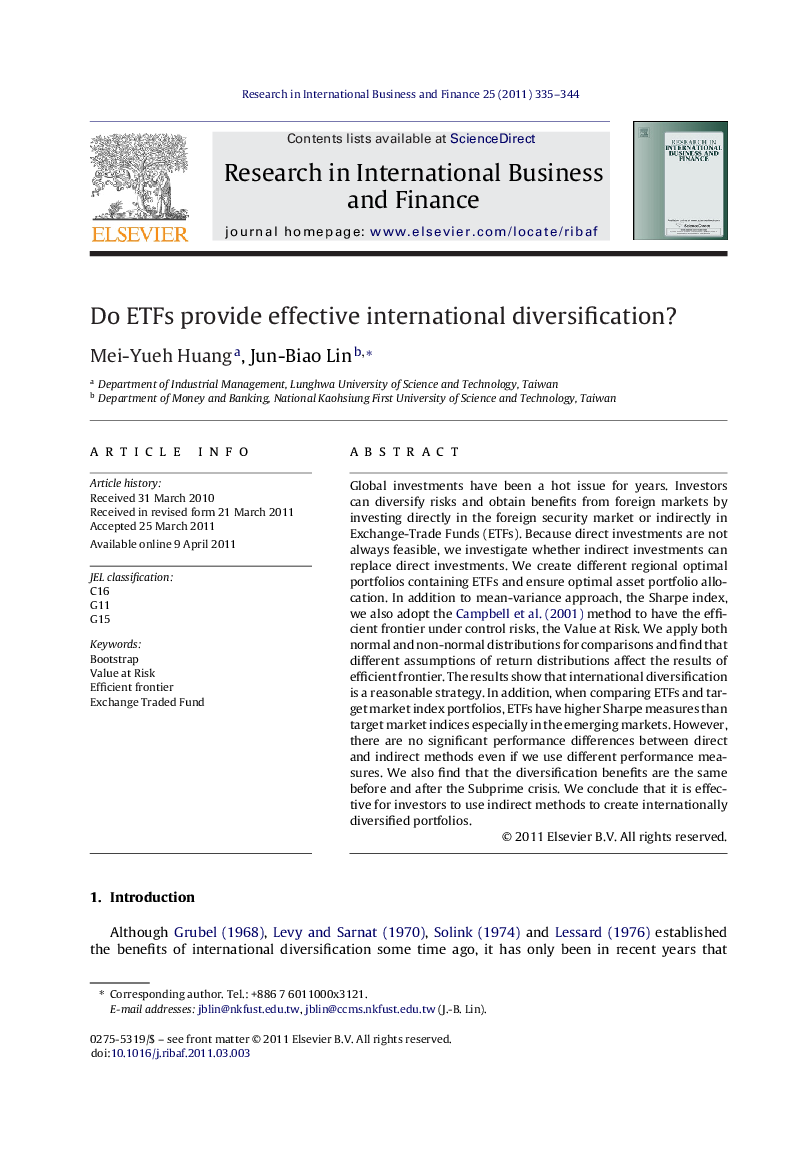| Article ID | Journal | Published Year | Pages | File Type |
|---|---|---|---|---|
| 1003170 | Research in International Business and Finance | 2011 | 10 Pages |
Global investments have been a hot issue for years. Investors can diversify risks and obtain benefits from foreign markets by investing directly in the foreign security market or indirectly in Exchange-Trade Funds (ETFs). Because direct investments are not always feasible, we investigate whether indirect investments can replace direct investments. We create different regional optimal portfolios containing ETFs and ensure optimal asset portfolio allocation. In addition to mean-variance approach, the Sharpe index, we also adopt the Campbell et al. (2001) method to have the efficient frontier under control risks, the Value at Risk. We apply both normal and non-normal distributions for comparisons and find that different assumptions of return distributions affect the results of efficient frontier. The results show that international diversification is a reasonable strategy. In addition, when comparing ETFs and target market index portfolios, ETFs have higher Sharpe measures than target market indices especially in the emerging markets. However, there are no significant performance differences between direct and indirect methods even if we use different performance measures. We also find that the diversification benefits are the same before and after the Subprime crisis. We conclude that it is effective for investors to use indirect methods to create internationally diversified portfolios.
